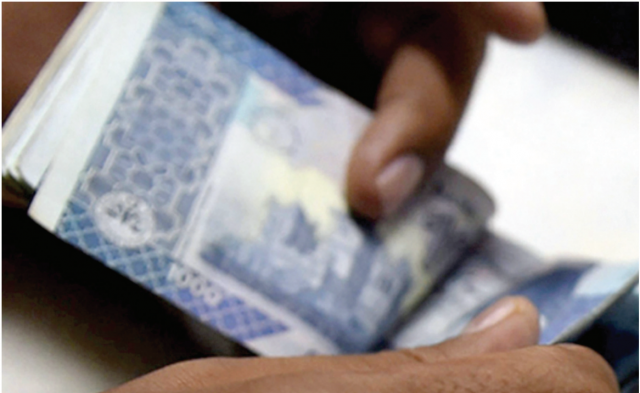Data privacy: key to banks sustainability
Though customers trust banks more than fintech challengers, this won’t last forever

Globally banks strive to improve their customer experience and retain their clientele via service. It is said that clients may not leave the bank for average products but for a bank it would certainly be difficult to retain a client with average service.
The challenge that the banking sector faces currently is that the standard of service that the customer is seeking is changing rapidly. Even though customers trust traditional banks more than the upcoming fintech challengers, this won’t last forever.
As customers start experiencing the services of tech-based entities and start enjoying online transactions, the demand for STP services would increase and banks would need to step up their transaction processing capability.
Banks would have to go through an evolution cycle and transform their thought process from a “Personal Banker” to a “Digital Banker”.
To compete in this race for the long term, the banks would need to provide customer autonomy, personalisation, democratise luxury experiences, increase customer touch points while simplifying the transaction processes.
Customer expectations from banks are near their peak and disruptors have never been hungrier and are challenging the payment process aggressively.
The Covid-19 pandemic and the Russia-Ukraine war have ignited fire, if leveraged upon, it would cause spark that will launch an explosion such that banking would be changed forever.
It’s only a matter of time before banking is disrupted the way tech companies like Tesla, Netflix, Uber, BnB and Shopify disrupted their respective industries.
If banks move swiftly, this wouldn’t need a banking bloodbath. Banks can grow from within, using the same technologies that disruptors hope will be their lethal weapon.
One of the key elements that is on the banks’ side is the customers’ fear of data confidentiality. The risk of cyber-attacks, along with issues of fake news and AI deep fakes, has put the world in a crisis of trust.
Banks deal in money, but trade in trust. By far the technology companies pale in comparison to the banks as they lead the trust cycle.
Consumers have trusted banks with their financial lives for centuries but now are demanding more as the world becomes more data-driven.
Studies already show that a majority of consumers trust banks with personal data, the most within any industry, and this presents banks with an opportunity to become the data vaults for customers.
Banks should not look at this as an opportunity to monetise people’s data and earn a quick buck but use this as an opportunity to extend trust from the financial world to the data world.
According to a survey, approximately 71% of people fear cyber-attack and more than half of internet users have been a victim of cyber-attack and identity theft or know someone who has gone through the experience.
Cyber criminals will steal an estimated 33 billion records in 2023. There were over 130 large-scale, targeted breaches in the US per year, and that number is growing by 27% per annum while 31% of organisations have experienced cyber-attacks on operational technology infrastructure.
The World Economic Forum’s 2020, Global Risk Report states that the rate of detection (or prosecution) is as low as 0.05% in the US.
Cybercrime will cost companies worldwide an estimated $10.5 trillion annually by 2025, up from $3 trillion in 2015; that is growing at a rate of 15% year-on-year. Some 43% of cyber-attacks are aimed at small businesses, but only 14% are prepared to defend themselves.
Banks have an unfair advantage; they are a trusted institution in the world full of mistrust. Banks need to take inspiration from their own history of building trust alongside looking at how tech firms are building ecosystems, working with data, and empowering customers with better outcomes.
The journey that banks need to take on their path to sustainability would be:
1. From a money vault to a privacy champion (a vault for money and data)
2. From eliminating competition to creating an ecosystem that benefits customers and vendors alike.
In future, the brick and mortar branches would still exist but would be used sparingly. Every core function of bank would be easily handled by its mobile app. The mobile app would be embedded with digital financial assistants that help customers optimise their experience.
Banking in the future would be more centered on the customer, than ever before, as banks invest in innovation and remove the archaic ways of doing things kept around for the sake of tradition.
The writer is a student of behavioral finance, a treasury and wealth management professional and a visiting faculty at IBA
Published in The Express Tribune, April 25th, 2022.
Like Business on Facebook, follow @TribuneBiz on Twitter to stay informed and join in the conversation.



















COMMENTS
Comments are moderated and generally will be posted if they are on-topic and not abusive.
For more information, please see our Comments FAQ